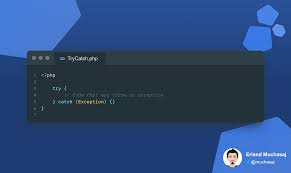Common Laravel Errors and How to Fix Them Quickly
Laravel, a robust PHP framework, simplifies web development but can present unique challenges. This guide focuses on common errors and their swift solutions, enhancing your development workflow.
1. Class 'App\Models\YourModel' not found
This error frequently arises when Laravel’s autoloading mechanism fails to locate your model. The solution involves verifying:
- Namespace: Ensure your model’s namespace (
namespace App\Models;) accurately reflects its location within yourapp/Modelsdirectory. - File Name: Check the model’s filename matches the class name (e.g.,
YourModel.php). - Autoloading: Confirm that your
composer.jsonfile includes the necessary autoloading configurations. A typical setup includes:
|
|
Run composer dump-autoload after making changes to your model or composer.json.
2. Undefined variable: $variable
This classic PHP error indicates you’re trying to use a variable without defining it. Solutions include:
- Variable Scope: Make sure the variable is declared within the correct scope (e.g., within the function or class where you’re using it).
- Typographical Errors: Double-check for typos in the variable name.
- Data Passing: If the variable originates from a different part of your application (e.g., a controller or view), ensure it’s being passed correctly using methods like
compact()in views or proper dependency injection in controllers.
Example (Controller):
|
|
3. SQLSTATE[HY000]: General error: 1364 Field 'column_name' cannot be null
This database error emerges when you try to insert a record into a table with a NOT NULL column without providing a value.
- Database Migration: Check your database migration to confirm that the column is nullable or has a default value.
- Data Validation: Implement robust data validation using Laravel’s validation features to ensure all required fields have values before attempting insertion.
Example (Laravel Validation):
|
|
4. Route [name] not defined
This occurs when you attempt to use a route name that hasn’t been defined in your routes file (routes/web.php or routes/api.php).
- Route Definition: Verify the existence and correctness of your route definition, including the correct name.
- Route Caching: Clear the route cache using
php artisan route:clear. This is particularly helpful after making route changes.
5. Call to undefined method
This error means you’re calling a method that doesn’t exist on a particular object or class.
- Method Existence: Confirm the method’s existence and correct spelling within the class you’re working with.
- Class Type: Ensure you’re using the correct class instance and that it actually possesses the method you’re calling.
By addressing these common Laravel errors proactively, you significantly reduce development time and ensure a smoother development process. Remember to consult Laravel’s official documentation for more in-depth troubleshooting and error handling strategies. Laravel Documentation
